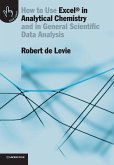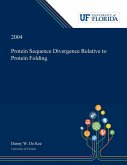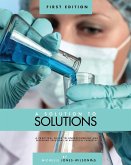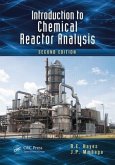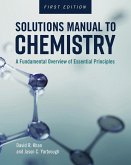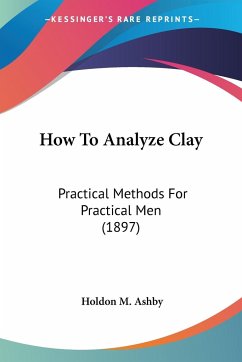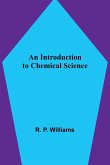For chemistry or writing in chemistry courses.
This writing guide, by a team that includes a prominent chemist, a writing specialist with extensive experience in teaching science writing, and the author of Pearson's best-selling Short Guide to Writing about Biology, teaches students to think as chemists and to express ideas clearly and concisely through their writing.
Providing students with the tools they'll need to be successful writers in college and their profession, A Short Guide to Writing about Chemistry emphasizes writing as a way of examining, evaluating, and sharing ideas. The text teaches students how to read critically, study, evaluate and report data, and how to communicate information clearly and logically.
Students are also given detailed advice on locating, evaluating, and citing useful sources within the discipline; maintaining effective laboratory notebooks and writing laboratory reports; writing effective research proposals and reports; and communicating information to both professional and general audiences.
Product Description
This writing guide, by the author of Pearson's best-selling Short Guide to Writing about Biology along with two well-known chemists, teaches students to think as chemists and to express ideas clearly and concisely through their writing.
Providing students with the tools they'll need to be successful writers, A Short Guide to Writing about Chemistry emphasizes writing as a way of examining, evaluating, and sharing ideas. The book teaches readers how to read critically, study, evaluate and report data, and how to communicate information clearly and logically.
Students are also given detailed advice on locating, evaluating, and citing useful sources within the discipline; maintaining effective laboratory notebooks and writing laboratory reports; writing effective research proposals and reports; and communicating information to both professional and general audiences.
Features + Benefits
Discusses all aspects of writing for chemists at all stages of training, including research reports, essay exams, term papers, research proposals, summaries, critiques, poster presentations, oral presentations, and letters of application for jobs and graduate programs.
Explains how chemists work, how they design studies, and how they think about the data they collect.
Provides detailed advice on working with data, presenting data, and interpreting the results of statistical analyses.
Gives detailed advice about locating useful sources of information, both in print and on the Web, and about avoiding plagiarism.
Offers extensive pedagogy in each chapter, including checklists and summaries which can easily be used by students to facilitate peer review and by instructors to generate grading rubrics.
Teaches students how to create effective oral presentations and poster presentations.
Preface
Part I: General Advice About Writing And Reading Chemistry
1. Writing: A Threshold Skill
What Do Chemists Write About And Why?
The Keys to Success
Ten Strategies for Preparing Your First Draft
Ten Strategies for Revising and Editing: Getting to Your Final Draft
Rules and Conventions: The Easy Stuff
The Essential Last Pass: Proofread
2. General Advice on Reading and Note-Taking
Why Read and What to Read
Effective Reading
Effective Note-Taking and Note-Organizing
Reading Data: Plumbing the Depths Of Figures And Tables
Reading Text: Summarize As You Go
Plagiarism and Note-Taking
Checklist for Reading and Note-Taking
3. Citing Sources and Listing References
Citing Sources
Some Guidelines for Citing Sources In Chemistry
Preparing the References Section
A Sample References Page
Checklist for Citing Sources
Checklist for Preparing the References Section
4. Revising
Why Revise?
Revising for Content
Revising for Clarity
Revising for Completeness
Checklist for Revising
5. Editing for Concision and ACS Style
Editing for Gender Neutral Language
Editing for Concision
Editing for ACS Style: Some Guidelines
Abbreviations and Acronyms
Capitalization for Chemists
Hyphens
Spelling
Chemistry Specific Conventions
Conclusion
Checklist
Part II: Guidelines for Specific Tasks
6. Keeping Laboratory Notebooks
The Role of Laboratory Instruction
The Teaching Laboratory Notebook
The Research Laboratory Notebook
Checklist for Final Draft
7. The Role of Lab Instruction
Writing Reports of Teaching Laboratory Experiments
Composition of the Report
Checklist for a Final Draft
8. Writing Summaries and Critiques
Writing the First Draft
Writing the Summary
Writing the Critique
Concluding Thoughts
Checklists tor Summaries and Critiques
9. Writing Essays and Review Papers
Writing to Learn
Why Bother?
Getting Started
Researching Your Topic
Developing a Thesis Statement
Writing the Paper
Plagiarism
Citing Sources
Creating a Title
Revising and Editing
Checklist for Writing Essays and Review Papers
The Plagiarism Challenge
The Citing Sources Challenge
10. Writing Research Reports The Nature of Scientific Research Components of a Research Report Longer Reports
Publication of Research Results
Preparing a Manuscript as Though for Publication
Checklist for a Final Draft
11. Writing Research Proposals
The Research Proposal as Persuasive Writing
What Are Reviewers Looking For?
Researching Your Topic
What Makes a Good Research Topic?
Writing the Proposal
Tightening the Logic
A Real Research Proposal
Checklist for a Final Draft
12. Answering Timed Essay Questions
Basic Principles
Applying the Principles
The Writing Component of the Graduate Record Exam
Checklist for Answering Timed Essay Questions
For chemistry or writing in chemistry courses. This writing guide, by a team that includes a prominent chemist, a writing specialist with extensive experience in teaching science writing, and the author of Pearson's best-selling Short Guide to Writing about Biology, teaches students to think as chemists and to express ideas clearly and concisely through their writing. Providing students with the tools they'll need to be successful writers in college and their profession, A Short Guide to Writing about Chemistry emphasizes writing as a way of examining, evaluating, and sharing ideas. The text teaches students how to read critically, study, evaluate and report data, and how to communicate information clearly and logically. Students are also given detailed advice on locating, evaluating, and citing useful sources within the discipline; maintaining effective laboratory notebooks and writing laboratory reports; writing effective research proposals and reports; and communicating information to both professional and general audiences.
Hinweis: Dieser Artikel kann nur an eine deutsche Lieferadresse ausgeliefert werden.
This writing guide, by a team that includes a prominent chemist, a writing specialist with extensive experience in teaching science writing, and the author of Pearson's best-selling Short Guide to Writing about Biology, teaches students to think as chemists and to express ideas clearly and concisely through their writing.
Providing students with the tools they'll need to be successful writers in college and their profession, A Short Guide to Writing about Chemistry emphasizes writing as a way of examining, evaluating, and sharing ideas. The text teaches students how to read critically, study, evaluate and report data, and how to communicate information clearly and logically.
Students are also given detailed advice on locating, evaluating, and citing useful sources within the discipline; maintaining effective laboratory notebooks and writing laboratory reports; writing effective research proposals and reports; and communicating information to both professional and general audiences.
Product Description
This writing guide, by the author of Pearson's best-selling Short Guide to Writing about Biology along with two well-known chemists, teaches students to think as chemists and to express ideas clearly and concisely through their writing.
Providing students with the tools they'll need to be successful writers, A Short Guide to Writing about Chemistry emphasizes writing as a way of examining, evaluating, and sharing ideas. The book teaches readers how to read critically, study, evaluate and report data, and how to communicate information clearly and logically.
Students are also given detailed advice on locating, evaluating, and citing useful sources within the discipline; maintaining effective laboratory notebooks and writing laboratory reports; writing effective research proposals and reports; and communicating information to both professional and general audiences.
Features + Benefits
Discusses all aspects of writing for chemists at all stages of training, including research reports, essay exams, term papers, research proposals, summaries, critiques, poster presentations, oral presentations, and letters of application for jobs and graduate programs.
Explains how chemists work, how they design studies, and how they think about the data they collect.
Provides detailed advice on working with data, presenting data, and interpreting the results of statistical analyses.
Gives detailed advice about locating useful sources of information, both in print and on the Web, and about avoiding plagiarism.
Offers extensive pedagogy in each chapter, including checklists and summaries which can easily be used by students to facilitate peer review and by instructors to generate grading rubrics.
Teaches students how to create effective oral presentations and poster presentations.
Preface
Part I: General Advice About Writing And Reading Chemistry
1. Writing: A Threshold Skill
What Do Chemists Write About And Why?
The Keys to Success
Ten Strategies for Preparing Your First Draft
Ten Strategies for Revising and Editing: Getting to Your Final Draft
Rules and Conventions: The Easy Stuff
The Essential Last Pass: Proofread
2. General Advice on Reading and Note-Taking
Why Read and What to Read
Effective Reading
Effective Note-Taking and Note-Organizing
Reading Data: Plumbing the Depths Of Figures And Tables
Reading Text: Summarize As You Go
Plagiarism and Note-Taking
Checklist for Reading and Note-Taking
3. Citing Sources and Listing References
Citing Sources
Some Guidelines for Citing Sources In Chemistry
Preparing the References Section
A Sample References Page
Checklist for Citing Sources
Checklist for Preparing the References Section
4. Revising
Why Revise?
Revising for Content
Revising for Clarity
Revising for Completeness
Checklist for Revising
5. Editing for Concision and ACS Style
Editing for Gender Neutral Language
Editing for Concision
Editing for ACS Style: Some Guidelines
Abbreviations and Acronyms
Capitalization for Chemists
Hyphens
Spelling
Chemistry Specific Conventions
Conclusion
Checklist
Part II: Guidelines for Specific Tasks
6. Keeping Laboratory Notebooks
The Role of Laboratory Instruction
The Teaching Laboratory Notebook
The Research Laboratory Notebook
Checklist for Final Draft
7. The Role of Lab Instruction
Writing Reports of Teaching Laboratory Experiments
Composition of the Report
Checklist for a Final Draft
8. Writing Summaries and Critiques
Writing the First Draft
Writing the Summary
Writing the Critique
Concluding Thoughts
Checklists tor Summaries and Critiques
9. Writing Essays and Review Papers
Writing to Learn
Why Bother?
Getting Started
Researching Your Topic
Developing a Thesis Statement
Writing the Paper
Plagiarism
Citing Sources
Creating a Title
Revising and Editing
Checklist for Writing Essays and Review Papers
The Plagiarism Challenge
The Citing Sources Challenge
10. Writing Research Reports The Nature of Scientific Research Components of a Research Report Longer Reports
Publication of Research Results
Preparing a Manuscript as Though for Publication
Checklist for a Final Draft
11. Writing Research Proposals
The Research Proposal as Persuasive Writing
What Are Reviewers Looking For?
Researching Your Topic
What Makes a Good Research Topic?
Writing the Proposal
Tightening the Logic
A Real Research Proposal
Checklist for a Final Draft
12. Answering Timed Essay Questions
Basic Principles
Applying the Principles
The Writing Component of the Graduate Record Exam
Checklist for Answering Timed Essay Questions
For chemistry or writing in chemistry courses. This writing guide, by a team that includes a prominent chemist, a writing specialist with extensive experience in teaching science writing, and the author of Pearson's best-selling Short Guide to Writing about Biology, teaches students to think as chemists and to express ideas clearly and concisely through their writing. Providing students with the tools they'll need to be successful writers in college and their profession, A Short Guide to Writing about Chemistry emphasizes writing as a way of examining, evaluating, and sharing ideas. The text teaches students how to read critically, study, evaluate and report data, and how to communicate information clearly and logically. Students are also given detailed advice on locating, evaluating, and citing useful sources within the discipline; maintaining effective laboratory notebooks and writing laboratory reports; writing effective research proposals and reports; and communicating information to both professional and general audiences.
Hinweis: Dieser Artikel kann nur an eine deutsche Lieferadresse ausgeliefert werden.


